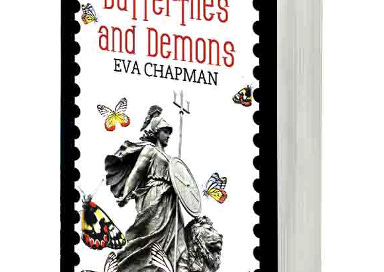Why I had to Write This Book
Last year, Dr Eva Chapman wrote about her book, ‘Sexy at 70’ for us at ‘Advantages of Age’. Here she explains why she had to write her latest book, ‘Butterflies & Demons’.
Last year, Dr Eva Chapman wrote about her book, ‘Sexy at 70’ for us at ‘Advantages of Age’. Here she explains why she had to write her latest book, ‘Butterflies & Demons’.
Butterflies and Demons is set in Adelaide, South Australia. After a vision, in 2006, about the Adelaide Aborigines (the Kaurna), I felt compelled to tell their story, which is also pa…
Keep reading with a 7-day free trial
Subscribe to Advantages of Age to keep reading this post and get 7 days of free access to the full post archives.



